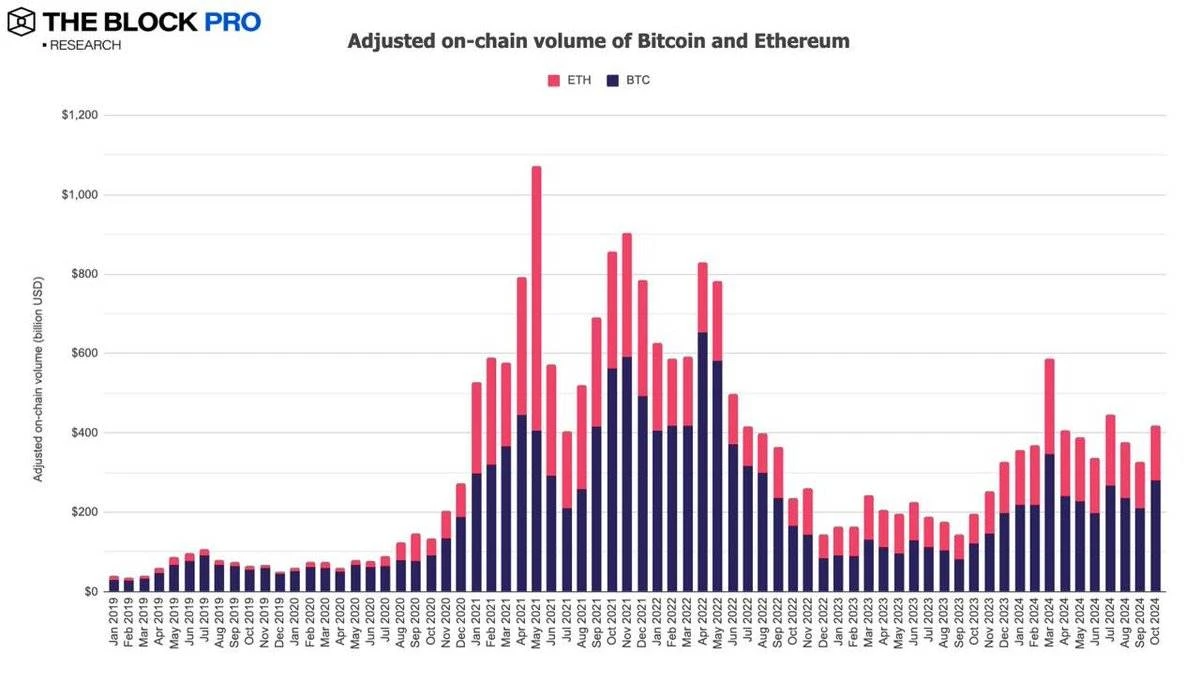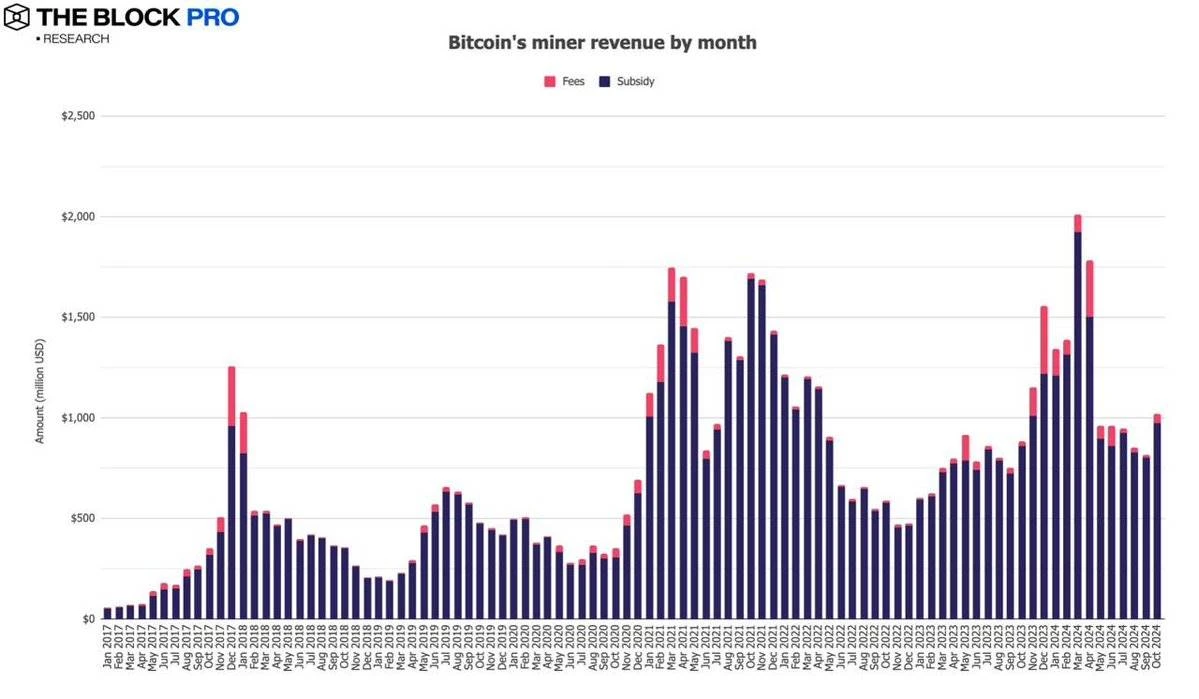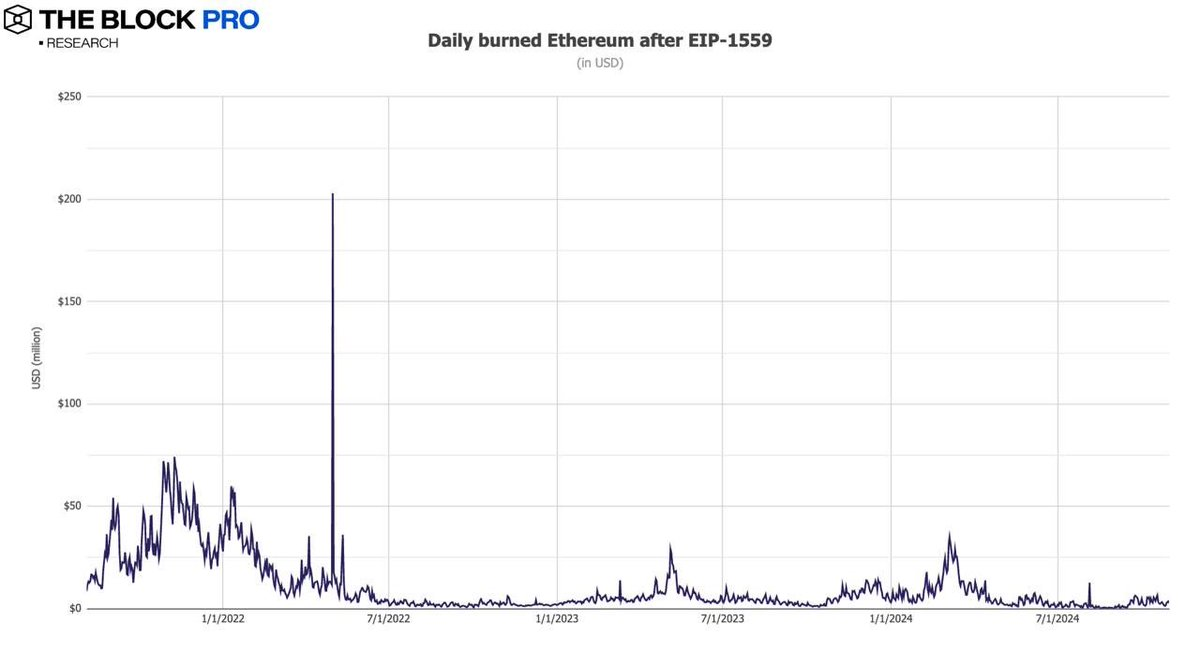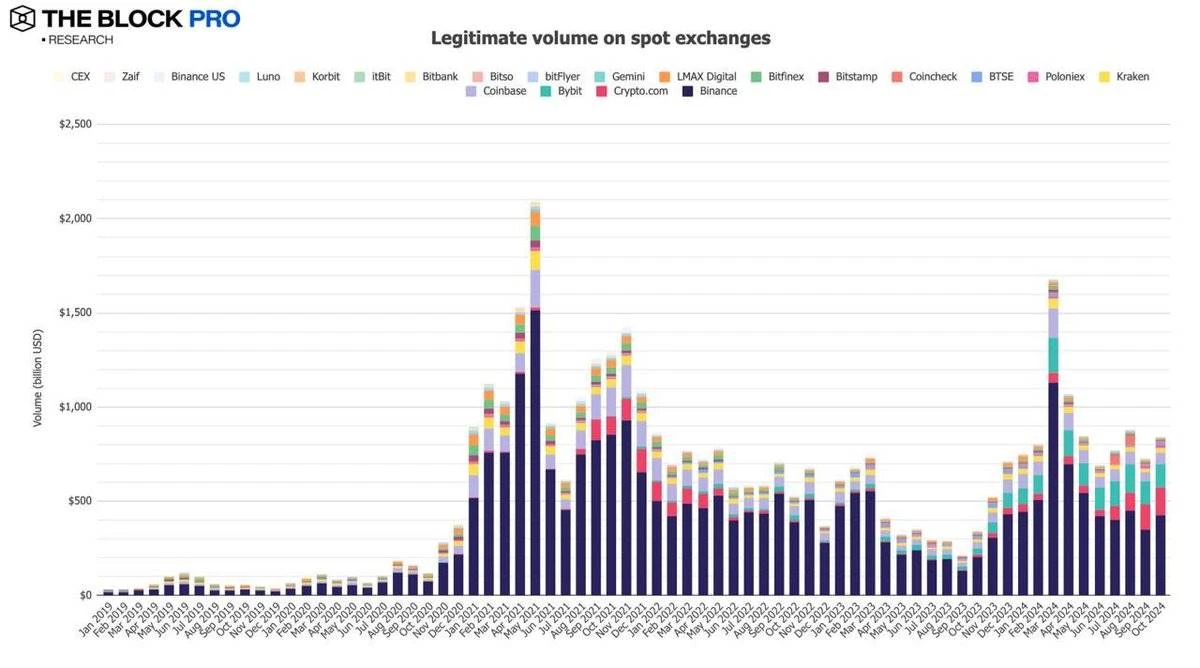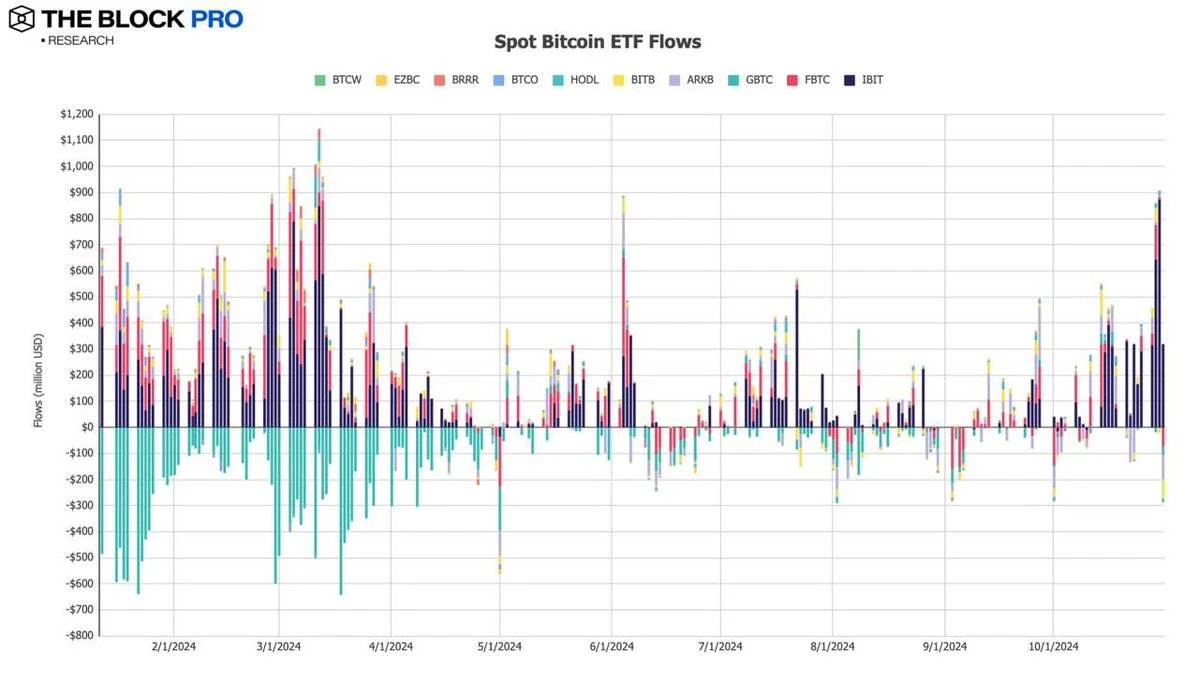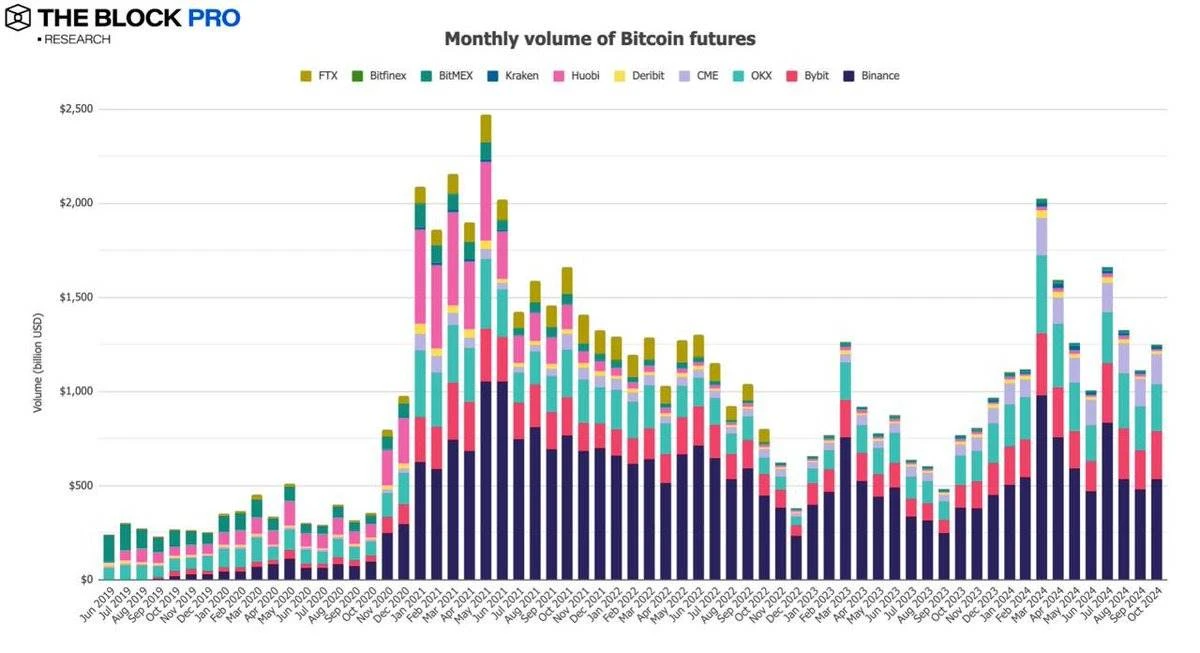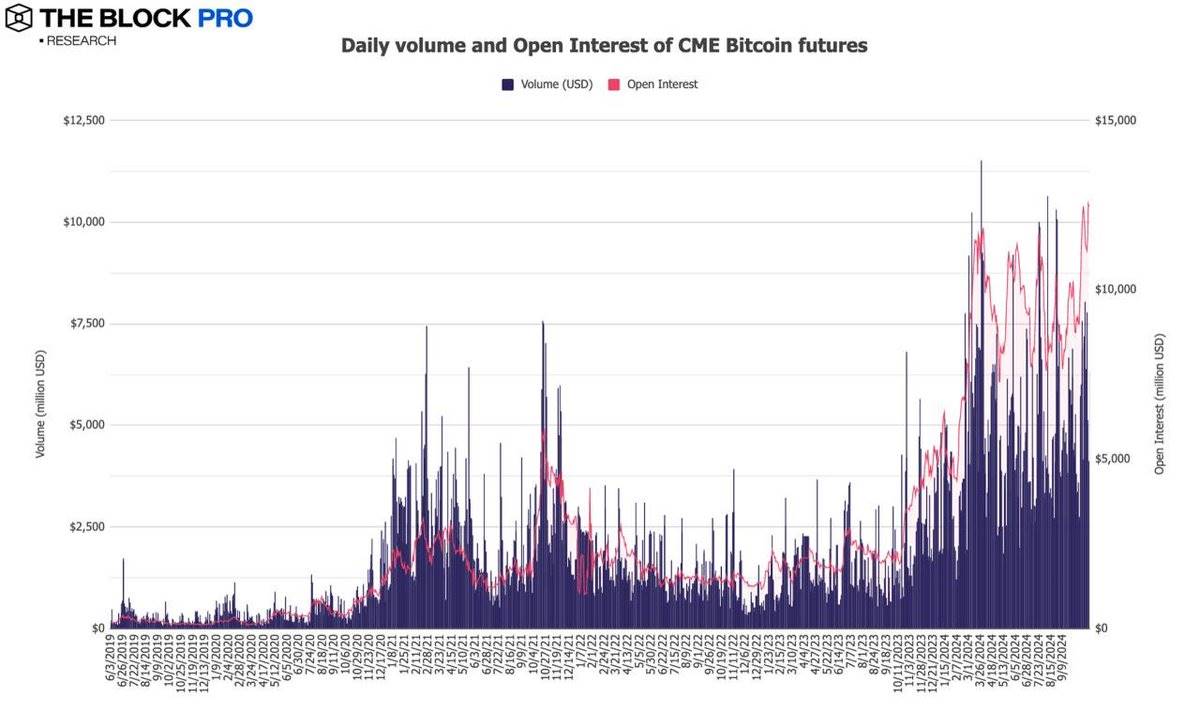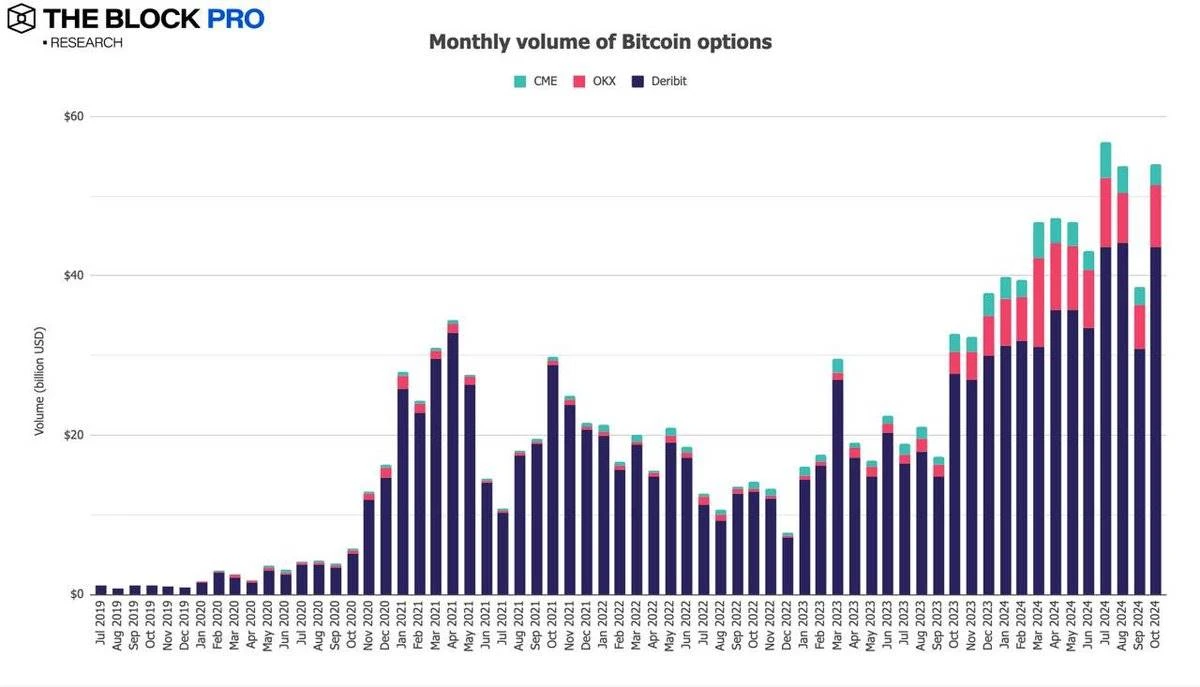Data review of the crypto market performance in October: BTC on-chain transaction volume increased by 32%
Original author: Lars , The Block Researcher
Original translation: TechFlow
Most metrics improved. Adjusted total on-chain transaction volume increased by 28.1% to $420 billion, with Bitcoin (BTC) up 32.1% and Ethereum (ETH) up 20.9%:
Stablecoin on-chain transaction volume increased by 8% to $899 billion after adjustment; at the same time, the total issuance decreased by 0.7% to $149.3 billion, with Tether (USDT) accounting for 79.5% of the market share and USD Coin (USDC) accounting for 16.9%:
Bitcoin miners saw their revenue increase by 25.4% to $1.02 billion, while Ethereum stakers saw their revenue increase by 5.8% to $221.5 million:
A total of 41,648 Ethereum (ETH) have been destroyed this month, equivalent to $105 million. Since the introduction of the EIP-1559 protocol in early August 2021, a total of 4.43 million ETH have been destroyed, worth approximately $12.5 billion:
The NFT market on Ethereum saw a 26.5% increase in monthly volume to $121.6 million:
Spot trading volume on compliant centralized exchanges (CEXs) grew 16.3% to $843 billion:
The monthly net inflow for all Bitcoin spot ETFs was $5.3 billion. IBIT hit an all-time high of $872 million in one day on October 30:
Futures Market: In terms of open interest, Bitcoin (BTC) hit a new high, up 22.9%, and Ethereum (ETH) increased by 14.6%; in terms of trading volume, BTCs monthly futures trading volume increased by 12.1% to $1.25 trillion, while ETH increased by 4.8%:
Open interest in CME Bitcoin futures increased by 21.5% to a new all-time high of $12.5 billion, while average daily volume increased by 9.6% to $5.3 billion:
Ethereum futures monthly volume increased by 4.8% to $488 billion:
In the options market, BTC has increased by 35.7% in terms of open interest, while ETH has remained unchanged. BTC鈥檚 monthly options volume increased by 39.8% to $54 billion, while ETH increased by 4.7% to $10.2 billion:
This article is sourced from the internet: Data review of the crypto market performance in October: BTC on-chain transaction volume increased by 32%
Related: The “stability” and “instability” of stablecoins in 2024
Original author: CoinGecko Original translation: Vernacular blockchain Stablecoins are a type of token that anchors its value to other assets (such as commodities or fiat currencies) to stabilize its price. By maintaining a peg to a specific fiat currency, asset, or commodity, most stablecoins act as a bridge between real-world assets and cryptocurrencies, mapping these assets to the blockchain in the form of tokens. Since 2014, companies like Tether and Circle have issued tokenized currencies backed by real-world financial assets, such as bank deposits and short-term bills. Through these companies, users can enter the cryptocurrency space directly by converting real-world deposits into newly minted stablecoins. Conversely, they can also exchange stablecoins back to fiat currency. However, not all stablecoins are fully backed by real-world tangible assets. Decentralized stablecoins, such as…
